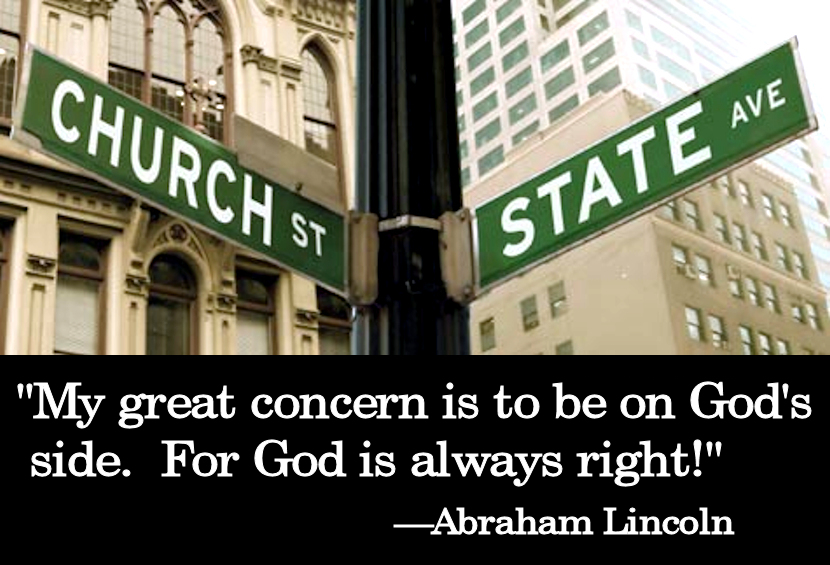Sunday, October 16, 2011
Gospel of Matthew, Chapter 22:21
The notion of the separation of Church and state is a most hallowed doctrine in this country. It has served to guarantee Americans freedom of religion for the past 200 years. This separation has become a hotly disputed topic, however, in today’s American culture. Many Churches seem to be taking a more active part in the political process whenever they view, as threatened, their religious tenets such as the sacredness of all human life, the protection of the environment, and the right to have their values taught and respected in public schools and institutions of learning.
The Bible insists that religion must mingle with the everyday lives we lead. Justice is a virtue and so it has a high place in religious teaching. But, it is also the foundation of any system of government and so belongs to the state, as well. The same is true of virtues like freedom, honesty, compassion, respect for others, and integrity. These spiritual and moral values which are found in religious denominations contribute to the welfare of the state for they contribute to the betterment of the individual citizen.
Jesus’ statement in today’s scripture about the rights of the State (Caesar) and the rights of God does not divide reality into two separate spheres. There is only one reality, but it has many facets. There are many religious traditions just as there are many political traditions in modern society, yet they need not be mutually exclusive; they can co-exist harmoniously. This is why Jesus asks us to render to each responsibly; to respect both the law of the land and the law of God.
By saying that we must “give to Caesar what is Caesar’s” Jesus stresses the need to fulfill our obligations to each other in the political and social world. By asserting that we must “give to God what is God’s” Jesus emphasizes our spiritual and moral obligations which can only be satisfied by being faithful to our conscience and our religious tenets. Involvement in the political life of society and involvement in the life of the Church go hand in hand. You cannot have a good society without good people, and it is difficult to have good people without a good society. “No man is an Island,” said John Dunne, “we are all part of the main.”
Still, it is not easy to be a Christian in today’s society. The temptations are everywhere in our liberal, secular society that espouses and practices “freedoms” contrary to the gospel. As Church, we are called to give both the State and God what is theirs. But the Gospel does not give us a simple answer. Discovering what society needs, and realizing what God deserves can only happen with hard work. Jesus gives us the general rule, in the gospel of Matthew 22: 15-21, with regard to our responsibility toward Church and State, but He does not address the specifics or the details because they are always changing, always challenging.
Being a good Christian requires a life of decision-making, a life of learning, and a life of fidelity to our Christian calling in this world. We are called, not to be of the world, but to live in the world as committed Christians, as the leaven of society. Mother Teresa did this in India, and was recognized for her Christian dedication by being awarded a State funeral by a Hindu nation. Sister Ruth Pfau sacrificed her life to eradicate leprosy in Pakistan which she did, and was awarded a State funeral by a Muslim Nation. Both these women gave to God what was God’s and to society what rightly belonged to society. But such, after all, is life at its best when someone “renders to Caesar ( The State ) what is Caesar’s and to God what is God’s.”
The kingdom of God can only be built up by people who render to the State what belongs to the State, and to God what belongs to God.
Fr. Hugh Duffy








Recent Comments